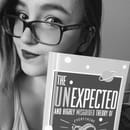Michael Radford’s Nineteen Eighty-Four (1984) is a brilliant adaptation of George Orwell’s novel. The film follows Winston Smith (John Hurt) as he struggles to find truth and meaning in the oppressive regime put forth by The Party and its leading figurehead: Big Brother. The Party is a totalitarian government which rules the people through consistent manipulation, withheld, distorted or falsified information and fear. Winston Smith himself works for The Party, as one of the people in charge of changing, editing, and rearranging the truth which was to be delivered to the public in accordance with Big Brother’s wishes. In doing so, The Party changes the population’s relation to truth itself: they come to understand reality as a shifting element and their own perceptions as untrustworthy. As such, the population becomes reliant on Big Brother to perceive the universe for itself, to become the eyes upon which their iconography relies. The added threat of war is an additional pressure which ensures that fear and mistrust are directed elsewhere: towards the clear, obvious, and immediate threat of the Other, as opposed to the inner realms of the community. This mental manipulation is of course made additionally obvious by the presence of the Thought Police, an organisation whose sole purpose is to catch so-called “thought-criminals”; individuals who have, in thought, betrayed The Party. Such is where the anarchist overtones of both the novel and the film shine through.
Anarchy is a far more nuanced political philosophy than its modern iterations may suggest: simply, it proposes that hierarchal power-structures are inherently poisonous and corrupt and that a population can only be free when rid of such systems. It does not suggest that there shouldn’t exist alternative organizational systems which could ensure the cohesive harmony of humankind. The anarchist philosophy is not necessarily a neoliberal one which seeks to remove government structures to implement complete independant, unrestrained rule of capitalism. An anarchist may for example, call for a form of true democracy, whereby all decisions are agreed upon by the entirety of the population, and hence restoring power to the masses as opposed to the elite. It is this very specific form of structured anarchism that Michael Radford’s Nineteen Eighty-Four can be considered to support.
The presumption is drawn at its very source, from the film’s approach to governmental organisations. The Party, and Big Brother are controlling and surveilling the masses for their own benefits – which is to say, in order to remain at the very summit of the societal hierarchy. However, where a different film may have called to subvert the organisation through supplanting it, Nineteen Eighty-Four presents us with a resistance, which later revealed to be under Big Brother’s thumb. One may therefore draw from the film the conclusion that all forms of government are inherently corrupted, working to present opposing ideas as a front for their ulterior motives. This is additionally supported by the fact that the only truly free people seem to be the proletarians: a group living essentially outside of society, in poverty, but following their own rules as opposed to those imposed by the government. They live in an anarchistic system, completely disenfranchised and treated like animals, but espite this, they are the only people who appear to have found happiness within their situation. They have claimed a form of truthfulness, expressed semiotically through the integration of the proletarian woman’s song and Winston’s final understanding and appreciation of it, once he has broken free of the mental chain works of The Party.
It is hence relevant to shine a light on the way in which the film portrays both the happiness of the proletarians, and the love between Winston and the mysterious Julia (Suzanna Hamilton), as acts of rebellion. This is important, due in large part to the way in which The Party uses fear (the constant threat of war) and hope (the constant reassurance that the end of the war is near) in order to keep the population in a state of docility. If a population is fearful, it is easier to convince them of the necessity of their difficult situation, but hopelessness leads to desperation, which in turn leads to rebellion. A careful balance of hope and fear are needed to maintain the idea that the individual has a need for Big Brother and the policies of The Party, and that their own thoughts and feelings are misleading. By loving outside of the system, and finding happiness within oneself, individuals gain assurance of the truth and of their own independence. If the individual is only truly free when he is at peace with himself and trusting of the truth of his interpretation and critical thinking, then any major controlling force (such as the government) becomes, in and of itself, anti-human.
Love is anarchy. Unless it isn’t.
You should probably make up your own mind.



